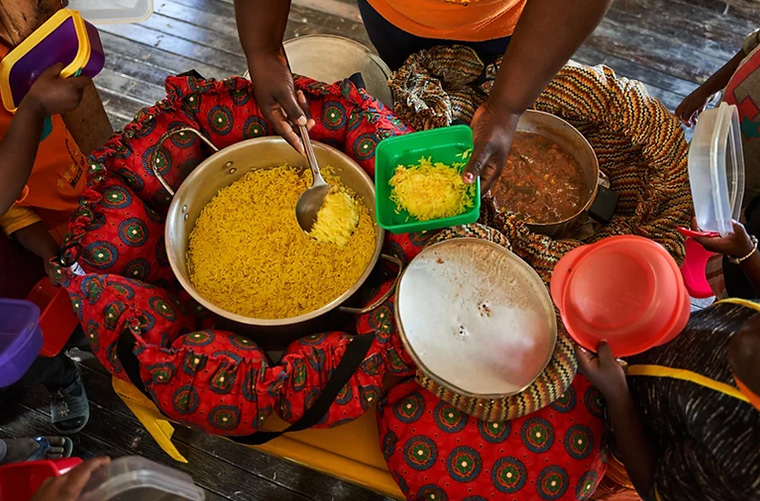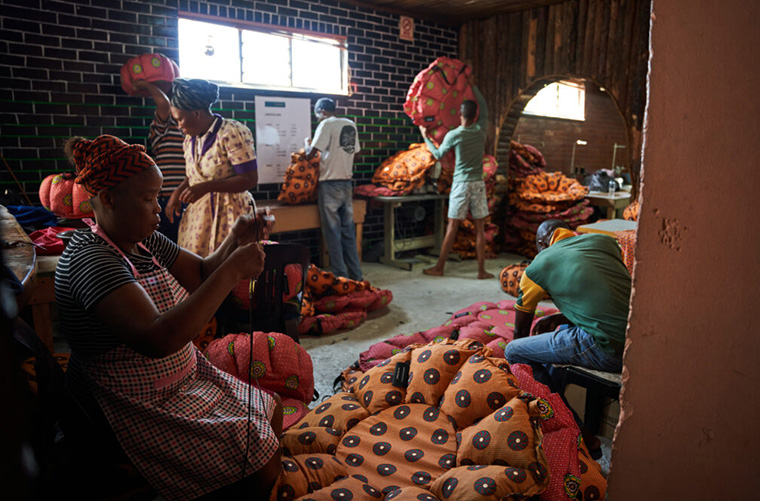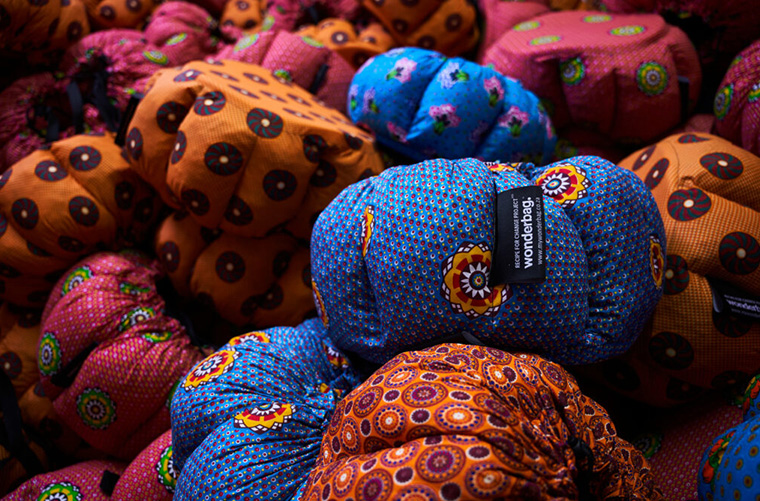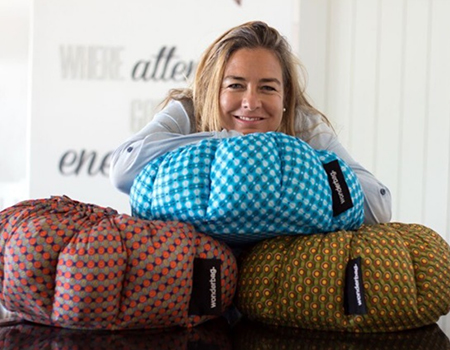Founded during power outages in South Africa, start-up Wonderbag and its non-electric, no-gas slow cooker of the same name, is utilising carbon market financing to lead the charge in driving sustainable impact in townships and rural areas where it is most needed.
Anglo American has signed a multi-year voluntary emissions reduction purchase agreement with Wonderbag, the South African social enterprise behind a clean cooking project, Recipe for Change Grouped Project, which is creating a positive climate and community impact across the country.
Wonderbag makes heat-retention cooking devices of the same name. These insulated fabric ‘bags’, which function much like a slow cooker, continue to simmer and cook food that has first been brought to the boil using conventional methods and fuels, without any additional energy required.
In the country’s townships and rural areas, where open fires – fuelled by biomass, coal, electricity or paraffin – are commonly used for cooking, a Wonderbag can help lower a household’s dependence on these fuel types, thereby reducing the amount of carbon dioxide released into the atmosphere, along with indoor air pollution and fuel costs1.

The company’s business model is based on carbon financing. When a bag is used, carbon credits are generated equal to the emissions prevented by the reduction in cooking time and the associated amount of fuel burned. Located in South Africa, Wonderbag qualifies as an offset project within the country’s carbon compliance sector.
In line with its carbon reduction model, Wonderbag received a portion of the funds from Anglo American upfront, used to finance the manufacture and distribution of an additional 240,000 bags over the next four years – including those supplied to lower income families at subsidised prices. Over 20,000 of these are already in circulation in the community. The transaction will also provide Anglo American access to a pipeline of high quality, verified voluntary carbon credits to 2027.
Cooking up a sustainable development storm
As well as targeting the climate crisis, Wonderbag also drives broader sustainable value creation, with its heat-retention technology delivering co-benefits for the household, community and the world at large.

These benefits, which go well beyond carbon reduction, are aligned with the UN’s Sustainable Development Goals – from promoting economic inclusion and empowering women, to reducing household air pollution – and include:
- For the 2.4 billion people worldwide still preparing meals via inefficient cooking methods, using conventional fuels, the bags aim to reduce the high number of deaths and illnesses caused by household air pollution (an estimated 3.2 million in 2020)4.
- With families able to save money normally spent on cooking fuels (as much as 70%), using the bags can help increase disposable income; money that can then be used to buy more food and to improve living standards.
- Wonderbags can save cooking time which, for household members responsible for this activity, often females, could facilitate access to education or allow them time to pursue entrepreneurial activities.
- The insulation used by Wonderbag is sustainably sourced, consisting of recycled materials such as chip-foam waste. Meanwhile the more efficient fuel usage that occurs when using a Wonderbag can also help reduce deforestation, with the use of just one bag estimated to save five trees annually.
- Wonderbag’s production process is underpinned by principles of sustainable socio-economic development. Factory and sewing collectives that produce the bags in South Africa’s KwaZulu Natal region provide women with sustainable employment opportunities.

Zaheer Docrat, Executive Head of Marketing, Energy Solutions, said: “With numerous co-benefits, this is a truly impressive project; one that falls squarely under the umbrella of sustainable value add, and that is well-aligned with Anglo American’s Purpose and our team’s core principles of providing materials solutions aligned with our customers sustainability objectives.
“Our Sustainable Mining Plan commits us to building thriving communities and driving positive behaviours around emissions reduction, enabling us to mobilise capital for projects with associated societal benefits, like Wonderbag. We look forward to partnering with Sarah and her wider team to deliver a positive impact – economically, socially and environmentally – for communities across South Africa.”
Inspired by Bridget Oppenheimer

Heat retention cooking has been around for hundreds of years. Wonderbag’s founder, Sarah Collins, was inspired by the legacy of Bridget Oppenheimer – the wife of former Anglo American chairman, Harry Oppenheimer – who made a meaningful contribution to grassroots development through the non-political movement, Women for Peace.
The movement’s most enduring project was the Wonderbox, based on a haybox principle pioneered by women during the First World War. Similar to the Wonderbag, this slow-cooking, low energy device was designed to transform the lives of low-income families throughout South Africa.
Between 1978 until her retirement in 1991, Bridget and her team of volunteers travelled to rural and often inhospitable areas to give practice cooking demonstrations, using economic foodstuffs, to women interested in learning to use them5.
1 Wonderbag, Sustainable Development Goals
2 Wonderbag, Our Carbon Investment Model
3 World Health Organisation, Household Air Pollution
4 Oppenheimer Memorial Trust, In the Media





